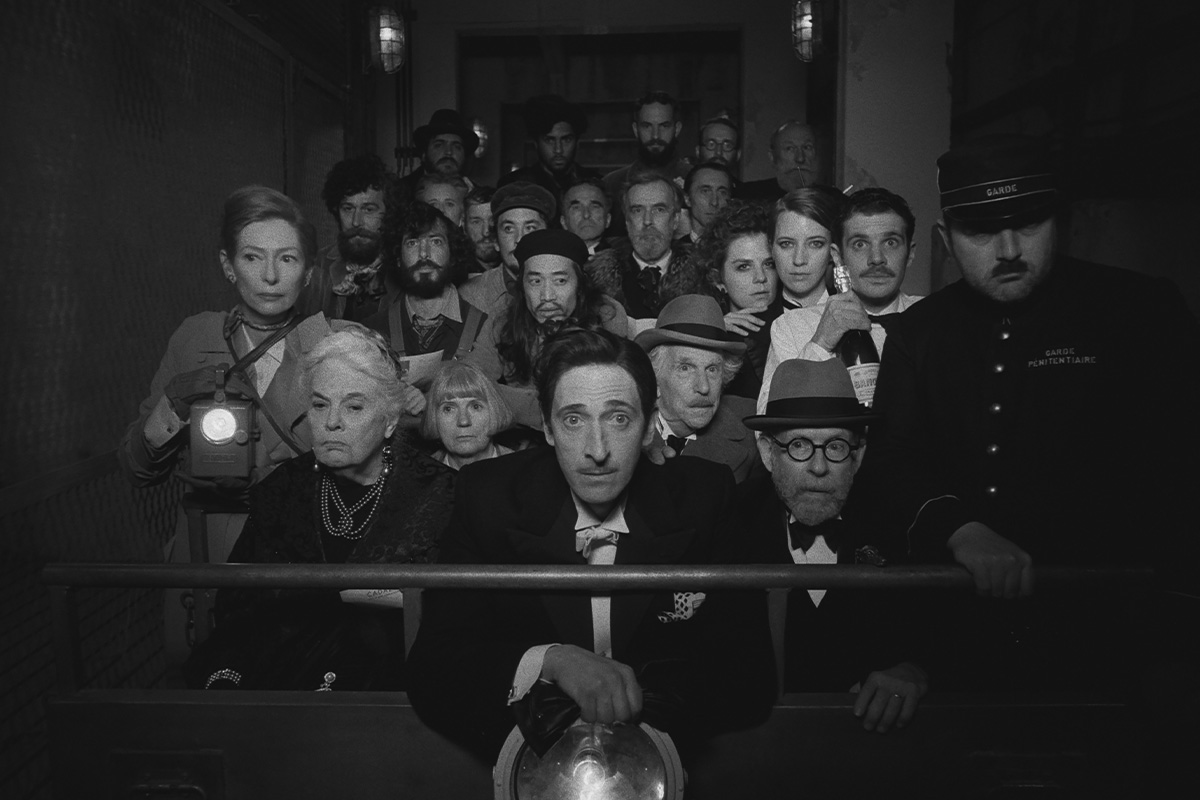Hark, cinephiles! Wes Anderson has returned to the silver screen with “The French Dispatch,” his latest romp of aesthetics that premiered at the Cannes Film Festival. Told as multiple stories within a story, “The French Dispatch” chronicles the life and death of a small newspaper in the fictional French town of Ennui-sur-Blasé, which is populated by Anderson’s usual troupe of actors.
Critics have praised the film for its thorough commitment to what Anderson does best: follow a wacky group of individuals through stylized routines in meticulously crafted settings of shtick. But am I here to tell you about the film’s influences and echoes and how it compares to Anderson’s previous work? Am I here to debate the film’s bleak politics and whether the story all ties together at the end? No, of course not. I’m here to rank the movie’s Jews.
Yes, there are a variety of Jewish actors in “The French Dispatch,” not including the extensive ensemble of extras. You have probably heard that Timothée Chalamet joined the Anderson gang, and won’t be surprised to see frequent Anderson collaborators like Jason Schwartzman and Adrien Brody. Here’s a ranking of the Jewish cast members of “The French Dispatch” and their many overlapping stories.
4. Jason Schwartzman, Wally Wolodarsky, Fisher Stevens and Anjelica Bette Fellini
The staff of the French Dispatch
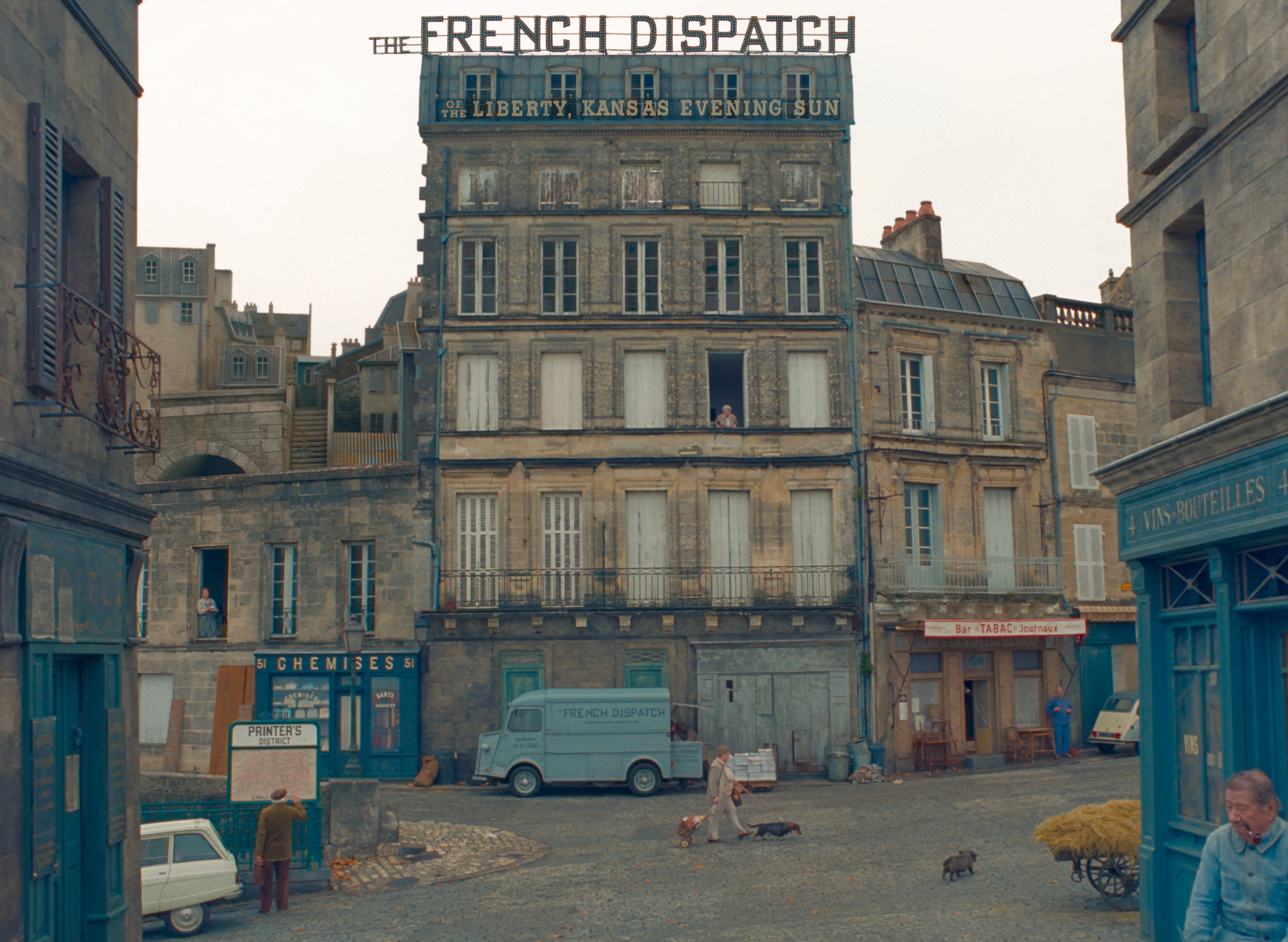
Though they aren’t featured in the film for very long, the staff members of the title newspaper guide the audience along in the story and ground us in its world. Schwartzman, who also has a story credit on the film, marks his seventh Anderson collaboration with “The French Dispatch,” while Wolodarsky marks his fifth and Stevens his third. Fellini makes her feature film debut as a proofreader at the paper and is the only Jewish woman in the cast.
In the end it doesn’t matter that the newspaper staff have fleeting performances, because they create the look of the world, their styles indicating Anderson’s signature color palettes. The presence of these Anderson regulars signify to the viewer a reentry into the effervescent and — dare I use this word — quirky milieu of his films, and Fellini is a welcome addition to the ensemble.
3. Henry Winkler, Bob Balaban and Adrien Brody
in “The Concrete Masterpiece”
The first big story-within-a-story of “The French Dispatch” follows Moses Rosenthaler (Benicio del Toro), an incarcerated Jewish artist who spends his time out of his cell dabbling in modern art depictions of his lover, a prison guard named Simone (Léa Seydoux). del Toro is not Jewish, but we are told by narrator J.K.L. Berensen (Tilda Swinton) that Rosenthaler is from a wealthy Mexican Jewish family, and that he murdered two people in a bar in a fit of rage when they bullied another patron.
Another inmate, former art dealer Julien Cadazio (Brody), wants to capitalize on Rosenthaler’s talent, believing that his work represents a new era of modern art that people will pay a lot of money for regardless of its actual quality.
Once released from prison, Cadazio enlists the help of his two uncles (Winkler and Balaban) to make Rosenthaler famous worldwide. This Jewish trio is delightful despite the queasy morals of the storyline, and Brody’s blowup when he returns to the prison sets up a gorgeously choreographed fight scene. Winkler’s appearance in the film is also a highlight in part because his hair resembles that of Albert Einstein. And Balaban is delightful because he’s, well, Bob Balaban.
2. Liev Schreiber and Mathieu Amalric
in “The Private Dining of the Police Commissioner”
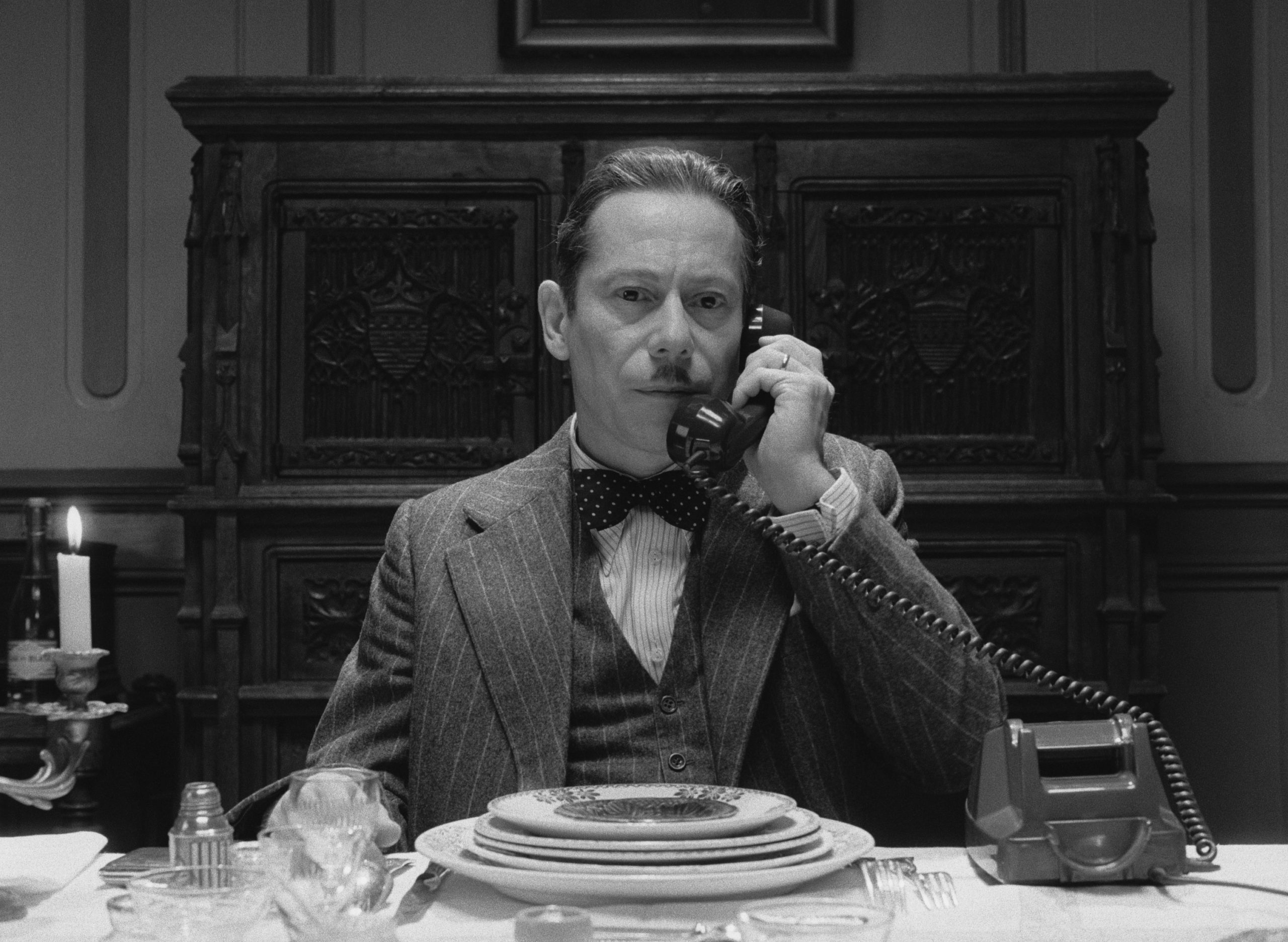
The third major story in the film follows a talk show host (Schreiber) testing the eidetic memory of a food writer (Jeffrey Wright) by making him quote a newspaper story about the chef (Stephen Park) in a police commissioner’s home line-by-line. Schreiber guides us through this exercise as we flash back to the story of the commissioner, or commissaire (Amalric), as kidnappers plot to abduct his young son (Winston Ait Hellal).
Amalric, who was featured in Anderson’s “The Grand Budapest Hotel,” delivers a captivating performance in one of the most fun segments of a film already bursting with whimsy. He also gets to provide voice work for his character during a memorable animated car chase sequence. Schreiber, meanwhile, pops back in to test Wright’s memory or seek a clarification, serving as a sort of meta-narrator for a story within a story within… like eight more stories.
1. Timothée Chalamet
in “Revisions to a Manifesto”
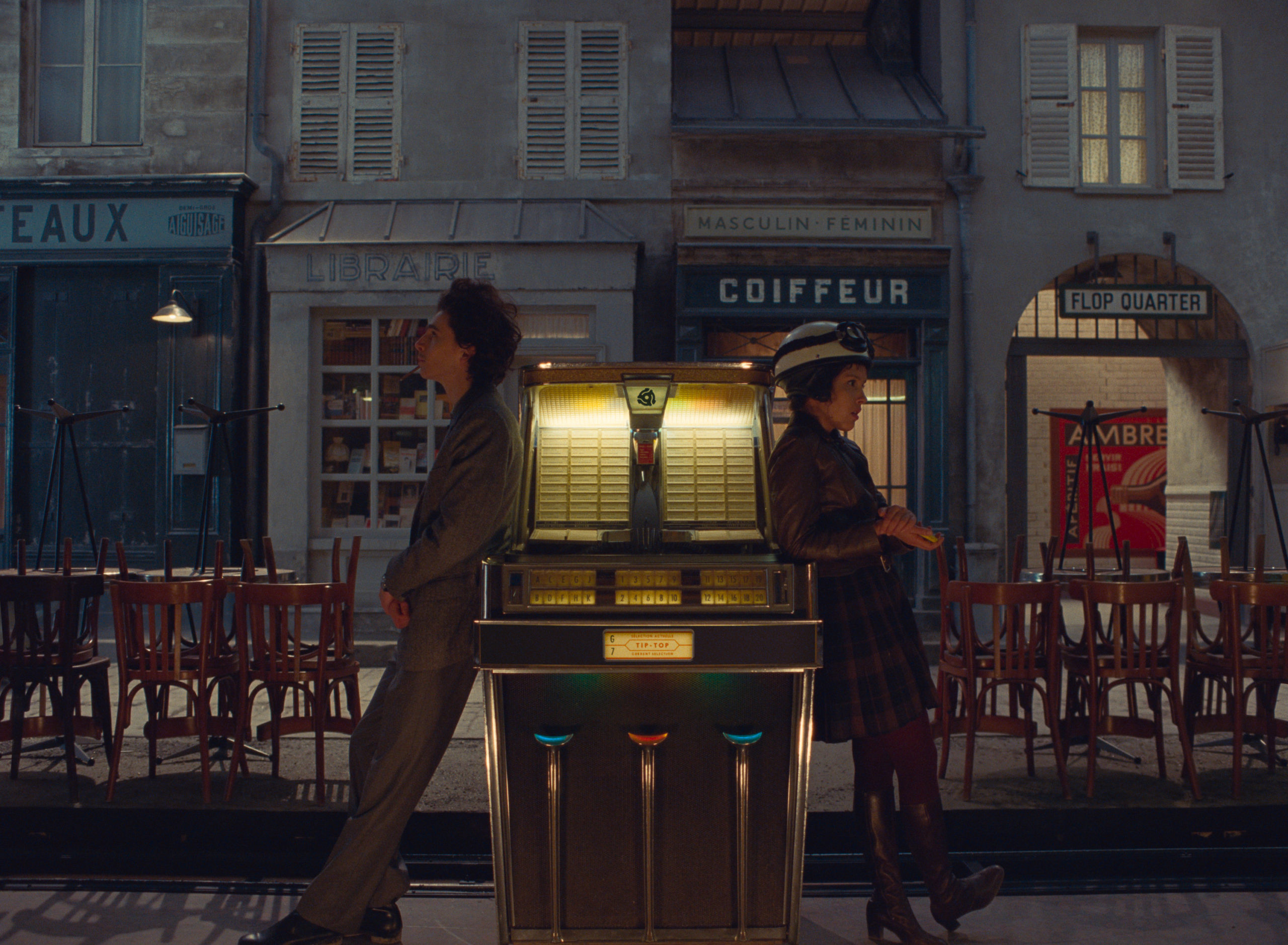
As the French student revolutionary Zeffirelli, Chalamet proves himself a perfect addition to Anderson’s traditional ensemble and will likely follow up the performance with other Anderson titles in the future. Noted for his pale and bony demeanor that I’ve started to call shtetl chic, Chalamet’s theatricality and comedic timing is the centerpiece of “The French Dispatch.” His Zeffirelli is both awkward and arrogant, and his partnerships with both Frances McDormand and Lyna Khoudri are expertly calibrated; the elaborate set-up for a joke about journalists in movies always sleeping with their sources is worth the price of admission. Pretty much everyone in their 20s has a crush on Chalamet and was going to see this film anyway, but I wouldn’t be surprised if he’s a major contender come awards season.
Unsure: Lyna Khoudri
in “Revisions to a Manifesto”
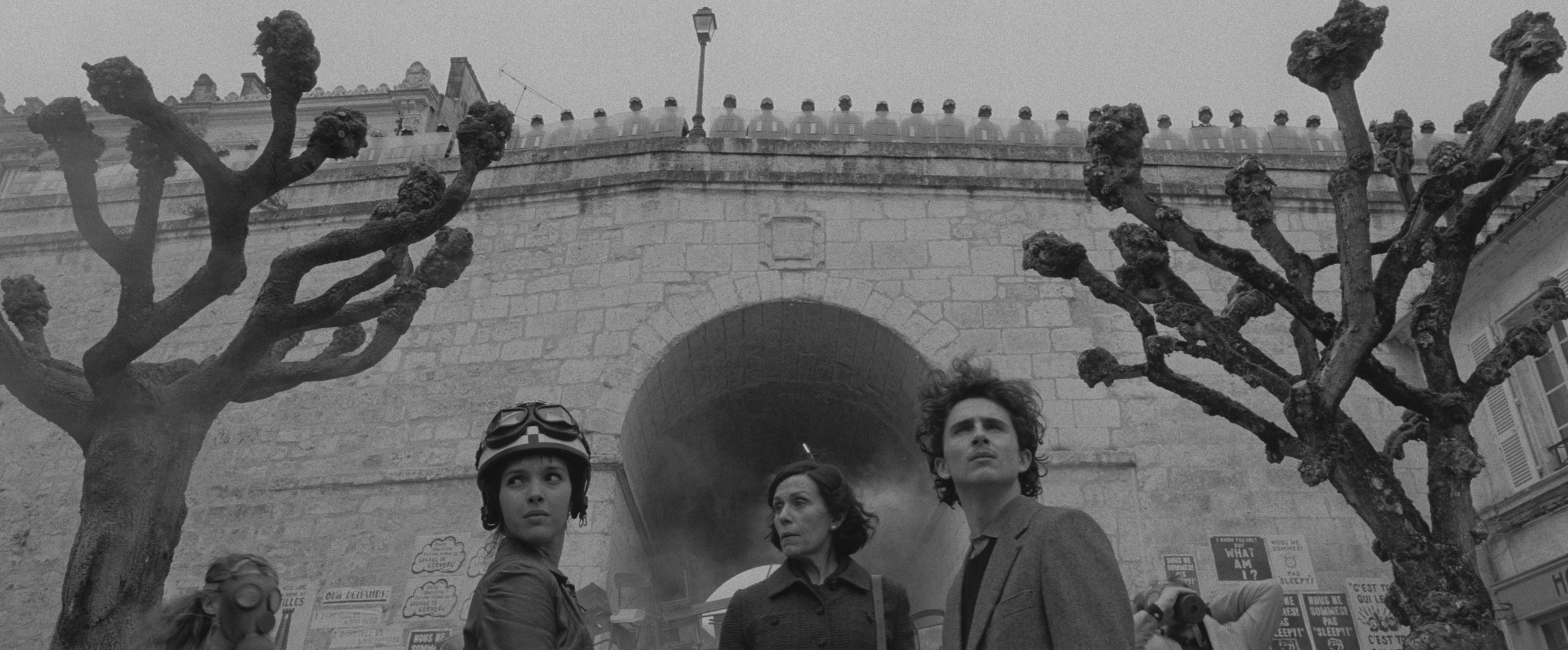
Khoudri’s hot-headed revolutionary Juliette challenges Zeffirelli’s authority before succumbing to his charms, and it’s a fabulous role for the Algerian actress. In an interview from 2020, Khoudri mentions that she wears a red thread with a pearl around her wrist because her mother gave it to her and because it’s “a symbol of protection in the Jewish religion.” This implies, to my mind, that Khoudri could be Jewish, but this interview is the only indication online, and may not have a perfect translation. Will Khoudri answer my Instagram DM about this? Only time will tell.
“The French Dispatch” opens in theaters on October 22.
